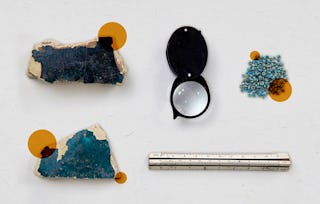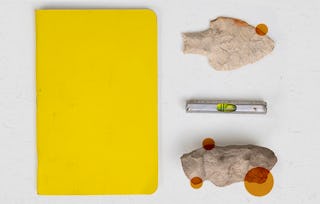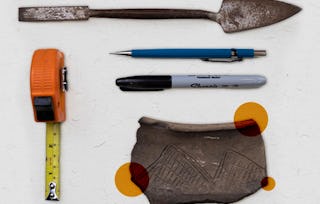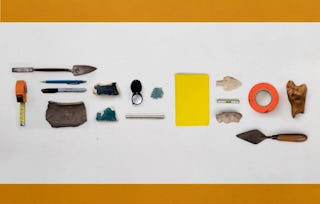This course is the fourth and final course in a series on the discipline of Archaeology. It is intended for learners at all stages, including advanced high school, college students, or life-long learners. Basic information about Archaeology and its history are presented in the first introductory course. The second course teaches common scientific methods used in archaeological research. The third course focuses on forms of interpretation to reconstruct various aspects of the past through archaeological approaches. This final course covers contemporary social issues that archaeologists engage with.

Introduction to Archaeology: Archaeology as Activism
Ends soon: Gain next-level skills with Coursera Plus for $199 (regularly $399). Save now.

Introduction to Archaeology: Archaeology as Activism
This course is part of Introduction to Archaeology Specialization

Instructor: Molly Morgan
Included with
Recommended experience
Skills you'll gain
Details to know

Add to your LinkedIn profile
26 assignments
See how employees at top companies are mastering in-demand skills

Build your subject-matter expertise
- Learn new concepts from industry experts
- Gain a foundational understanding of a subject or tool
- Develop job-relevant skills with hands-on projects
- Earn a shareable career certificate

There are 6 modules in this course
Hey there! Are you curious about how archaeologists can use their research to make a positive impact on communities? If so, then our fourth course in the "Introduction to Archaeology" called "Archaeology as Activism" is perfect for you! 💡 In this course, we'll explore how archaeologists work alongside communities and other groups to improve the lives of people around the world. 🌍 You'll learn about the tools and knowledge archaeologists use to conduct research that positively impacts modern communities. 🔍 So, come join us and discover how archaeology can be a powerful force for change in the world today! 🌟
What's included
2 videos4 readings1 plugin
Hey there! Let's explore Activism as Archaeology, where every dig site tells a story that's not just ancient history but deeply intertwined with the present. In this module, we'll explore how archaeology isn't just about uncovering artifacts; it's about understanding the social, cultural, and political contexts that shape our past and present. We will also learn to be not just passive observers of the past but active agents of change! By using archaeology as a tool for justice, we're challenging the structures of racial injustice and building a practice rooted in anti-racism. Let's unearth the past, confront the present, and shape a better future together!
What's included
6 videos6 assignments1 peer review1 discussion prompt
Hey there! Are you interested in learning how past environmental systems can help us better understand our world today? Our study topic will delve into the fascinating realm of applied environmental archaeology, where we explore how archaeology research can inform current concerns about landscapes and climate change. Join us to discover how information about dynamic environments can be relevant and valuable for present people and explore culturally meaningful landscapes through the lens of historical research. Let's dive in!
What's included
5 videos5 assignments1 peer review1 discussion prompt
Hey there! Have you ever wondered about the cultural heritage of our world?🏛️ These are the remnants of our ancestors' unique traditions, the tangible pieces of history that connect us to our shared past and must be safeguarded for generations to come. Archaeologists work with cultural heritage specialists, museum experts, public history professionals, and community groups to preserve our heritage for the future. Together, we can weave together the stories of the past, celebrate our diverse heritage, and ensure that these invaluable pieces of history remain intact for future explorers. 💼
What's included
7 videos1 reading7 assignments1 peer review1 discussion prompt
Get ready to unlock the secrets of time in archaeology! ⏳ In this module, we'll dive deep into the fascinating world of chronology – the backbone of archaeological understanding. 🕰️ So, why is chronology so crucial? If we want to understand how and why human societies changed over time, we need to know when things happened! That's where archaeologists come in, using various techniques to construct chronologies that help us order artifacts, sites, and events in time. From relative dating techniques like stratigraphy to absolute methods such as radiocarbon dating, we'll dive into archaeologists' tools to piece together the timeline of human history. Join us as we uncover the inner workings of these methods, their data, and potential limitations. 🌟🔍
What's included
6 videos6 assignments1 peer review1 discussion prompt
Congratulations on completing the fourth and final course in the Introduction to Archaeology specialization! 🎉 You have journeyed through an incredible specialization, delving deep into the fascinating world of archaeology from start to finish. 🌟 Throughout this course, we have honed our archaeological skills and reflected on the significance of our work in today's world. By embracing an ethical framework and striving to make positive impacts with our research, we have embraced the true essence of archaeology as a force for good. 💫 Whether you followed the specialization from the beginning or just joined us for this final chapter, your dedication to exploring the depths of archaeology is commendable. 🌍 Thank you for participating in this incredible past, present, and future exploration.
What's included
1 video2 assignments1 peer review
Earn a career certificate
Add this credential to your LinkedIn profile, resume, or CV. Share it on social media and in your performance review.
Instructor

Offered by
Explore more from Governance and Society
 Status: Free Trial
Status: Free TrialRice University
 Status: Free Trial
Status: Free TrialRice University
 Status: Free Trial
Status: Free TrialRice University
 Status: Free Trial
Status: Free TrialRice University
Why people choose Coursera for their career




Frequently asked questions
To access the course materials, assignments and to earn a Certificate, you will need to purchase the Certificate experience when you enroll in a course. You can try a Free Trial instead, or apply for Financial Aid. The course may offer 'Full Course, No Certificate' instead. This option lets you see all course materials, submit required assessments, and get a final grade. This also means that you will not be able to purchase a Certificate experience.
When you enroll in the course, you get access to all of the courses in the Specialization, and you earn a certificate when you complete the work. Your electronic Certificate will be added to your Accomplishments page - from there, you can print your Certificate or add it to your LinkedIn profile.
Yes. In select learning programs, you can apply for financial aid or a scholarship if you can’t afford the enrollment fee. If fin aid or scholarship is available for your learning program selection, you’ll find a link to apply on the description page.
More questions
Financial aid available,





